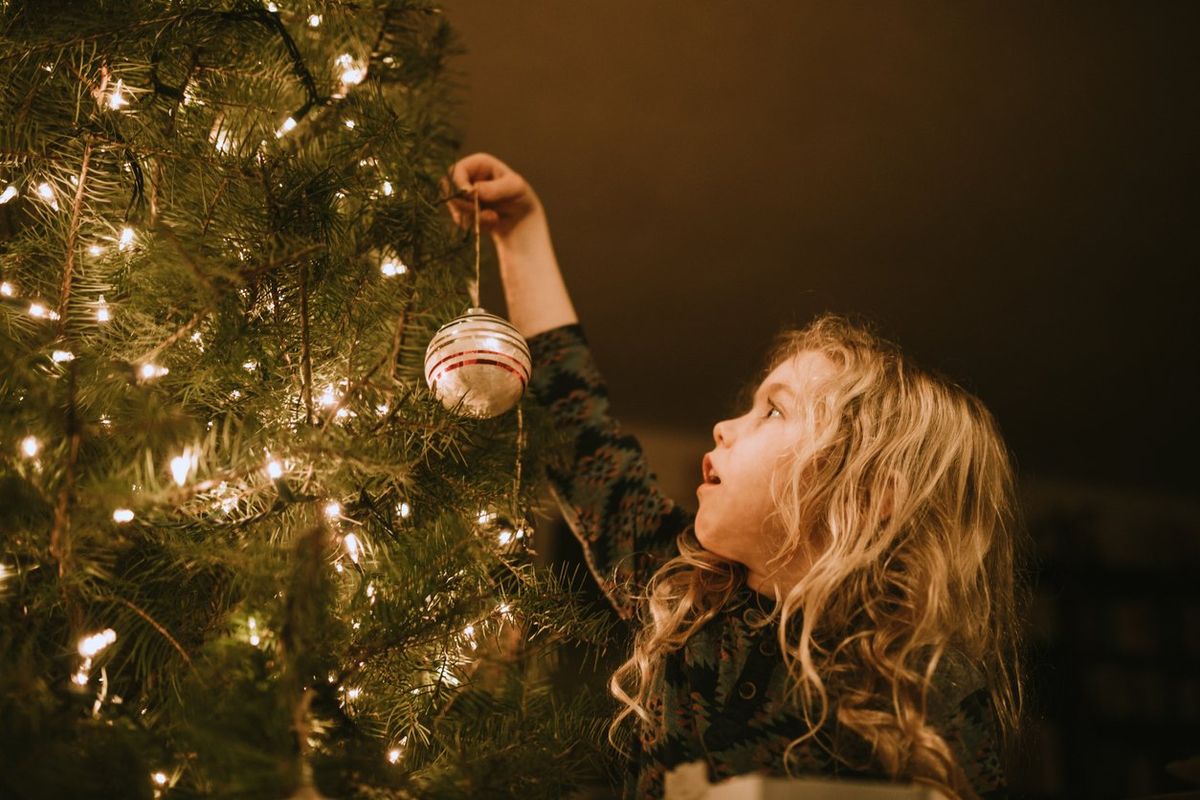Whether your family observes Christmas or Hanukkah or both or neither, the holidays can be a busy time from Thanksgiving through the New Year. In our haste to do everything and go everywhere and celebrate with everyone, accidents can—and do—happen. If you have young children or even pets in the home, it's important that you take extra safety precautions to make sure your holidays remain happy.
The first thing you can do is make sure you get enough rest. We all know that accidents are more likely to happen when we're tired. Only you know how much sleep you need to function at your best, but the National Sleep Foundation says that most healthy adults need seven to eight hours a night. Try your best to get it, even when you're busy. You won't be at your parenting best, if you're sleep deprived and stressed out, and your children won't be at their best if they're tired.
Here are some home holiday safety tips from the U.S. Consumer Product Safety Commission, along with some mom advice from me:
Candles
- Never use lighted candles on a tree or near other greenery.
- Keep candles away from wrapping paper and other decorations.
- Place candles where they won't be knocked down or blown over (remember, cats, dogs and children can get to candles in places you'd never suspect!).
- Don't leave the room or fall asleep with candles burning.
- Keep matches and lighters safely stored away from children.
Fires
- Before lighting any fire, remove greenery, bows, papers and other decorations from the fireplace area.
- Check to see that flue is open.
- Keep a screen in front of the fireplace any time a fire is burning.
- Use care with "fire salts," which produce colored flames when thrown on wood fires. Keep fire salts away from children because they contain heavy metals that are harmful if eaten.
- Do not burn wrapping paper in the fireplace. It can cause a flash fire, and some can emit harmful chemicals.
Trees and greenery
- Make sure artificial trees and greenery are fire resistant.
- Live trees should be fresh when you put them up (check needles to make sure they bend, not break, and that they don't easily fall off the limbs).
- Cut off about two inches of the trunk before you place it in a sturdy, water-holding stand, and keep the stand filled with water.
- Don't place trees and greenery near fireplaces, radiators or other heat sources; they will dry out faster and become fire hazards.
- Place the tree out of reach of children, if possible. If you have a mobile baby, consider using a tabletop tree that your baby can't reach or use baby gates to keep baby and tree apart.
- Anchor the tree to prevent children or pets from knocking it over. (We wrap wire around the trunk near the top and fasten the wires to nails in wood trim. The one year we thought our kids were old enough not to need it anymore, our cat decided to climb the trunk, and the tree came crashing down. Trust me on this one.)
- Hang breakable or sharp ornaments or those with small removable parts out of reach of small children or pets. (I've known of at least one dog that devoured nearly a whole tree's worth of ornaments.) Place things like little stockings and durable Santas near the bottom where it's OK for a young child to play with them (as long as your tree is safely anchored).
- If small children are around, avoid trimmings that resemble candy or food, which they may be tempted to eat.
- Use only non-combustible or flame-resistant tree trimmings.
- Avoid leaded decorations, which can be hazardous if ingested by children.
- Dispose of trees and greenery when they start drying out.
Lights
- Use only lights that have been tested for safety. Make sure they have a label from an independent testing laboratory.
- Check each set of lights for broken or cracked sockets, frayed or bare wires, or loose connections. Discard or repair damaged sets.
- Use no more than three standard-size sets of lights per single extension cord. Newer LED lights allow more strands to be strung together, up to 216 total watts on one 15-amp circuit.
Turn off all lights on trees and other decorations when you go to bed or leave the house. Lights can short and start a fire. - Keep "bubbling" lights away from children. The bright colors and bubbling movement can tempt children to play with them; if they break, children can be cut or harmed by drinking the liquid.
Poisonous Plants
If you have young children or pets in the house, be careful what plants you use for decorations. Contrary to a long-held myth, poinsettias pose little health risk, but these plants should be avoided around children:
- Mistletoe (highly toxic white berries)
- Holly (highly toxic red berries)
- Bittersweet (often used in wreaths and floral arrangements, but the entire plant is poisonous)
- Boxwood (often used in wreaths and swags; twigs and leaves are toxic)
- Pine (ingesting large amounts can be toxic and handling pine may cause skin irritation)
- Jerusalem cherry (commonly used for Christmas decorations; berries are highly toxic)
Other Dangers
- If decorating with spun glass "angel hair," wear gloves to avoid irritation to eyes and skin and keep it out of the reach of children.
- Artificial snow can irritate lungs if inhaled. Read the label and keep it stored safely away from children.







